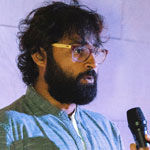Q. Will many printed newspapers still be around in 2030 – and what differences might they have compared to today’s titles?
Brian Aitkin, Editor, The Journal (Newcastle): “Yes – although I suspect many will be in cut-price tablet form with the print version being premium-priced luxury. I think tablets will be the saviour of print – or at least extend the lifespan of printed products.”
Richard Butt, Editor, Isle of Man Examiner, Manx Independent and Isle of Man Courier: “Far fewer than now. Their cover price will be very high. They will be more serious, with more analysis and be more of a news review than breaking news. Far lower circulations. Breaking news will be on the web and broadcast. Some papers will be fortnightly or even monthly.”
Mike Gilson, Editor, Belfast Telegraph: “Some do not deserve to be around now but others will survive. There are some cracking weeklies in the right rural markets which, if they keep to the old stuff – planning, courts, people and places – will hang around. We have to get used to doing stuff differently: in-depth, beautiful narratives, exclusives, investigations. They will be higher priced and less frequent but the quid pro quo will be increased quality… think lots of mini Economists, only with panache and vitality.”
Rob Irvine, Editor, Manchester Evening News: “Yes, loads of them. More free distribution, more community-owned papers.”
Judi Kisiel, Editor, Weston, Worle & Somerset Mercury: “Yes. The industry will have been streamlined, but the fittest will survive. Those which retain the hearts and minds of their communities, which immerse themselves in the issues and campaigns which matter to their readership, will still be around, and – in the best cases – still thriving. I think I’m lucky to be editing one of those papers.
“I think the online / print seesaw will have tipped a little further, and it’s inevitable that direct reader involvement will have continued to grow. I see that as a good thing, as long as it works alongside printed papers’ more traditional offerings. It’s vital that we protect the credibility and trustworthiness that our names guarantee, and so the retention of trained journalists and photographers is a must. And I think our working model is the right one – ensuring that our editorial team all know the value of targeting opportunities for both print and digital, and strive to find ways to complement both.”
Gary Lawrence, Editor, Swindon Advertiser, Wiltshire Gazette & Herald, and Wiltshire Times: “Yes, but they will be hyperlocal and will complement strong web brands.”
Geoff Martin, Editor, Hampstead and Highgate Express: “Yes, especially in areas of the regional press where there’s strong brand loyalty. There’s a harsh reality here: publishers need to retain and invest in print products as that’s where the vast majority of the revenue comes from. But it’s not an either-or situation. Good media brands will continue to be active in both print and digital. Continued restructuring of the print media will result in fewer titles – but there will still be plenty around. For established brands with good territory, there’s the advantage that the entry cost into print is high, extortionately so nowadays, and that’s a shield against competitors, while digital activities can be more easily replicated fairly cheaply, and are therefore more vulnerable. It’s not complicated: print products that can pay their way will survive. If they help publishers make money online, they are even more essential.
“If anything, they will attempt to be closer to their readers, more focused on circulation ‘hotspots’, and it’s inevitable that there will be some form of ‘gentrification’, newspapers deliberately targeted at high-profile readerships – where the money is, in other words. There’s a particular problem ahead for deprived areas in big cities where the infrastructure can’t really support print products through advertising revenues. Circulation models may have to change as well, and the Evening Standard in the past few years has shown everyone that if your product is good enough, readers and advertisers will appreciate it, respond to it and enjoy the fact that it’s free, rather than sneering. The Standard has raised the bar and shown that the success of a free newspaper goes hand-in-hand with quality. It’s probably better now than it’s ever been.”
Andrew Mosley, Editor, Rotherham Advertiser: “I think they will, though one of the big issues will be to persuade people who have been brought up on free news to pay for it. Maybe papers will be free by then. They will still be news led, but will probably feature much more contributed copy – complete with all the problems that entails. There will be far more reader interaction and crossover with digital editions / news.”
Gary Phelps, Editor, Tamworth Herald and Sutton Coldfield Observer: “I’m a true optimist. I think there will be plenty of newspapers around in 2030. Weekly papers like ours will retain much of what has made them relevant: local events, faces and opinions gathered into one, professionally-produced package.”
Ian Savage, Editor-in-Chief, The Bolton News and Bury Times Group: “Some dailies will probably go weekly or bi-weekly, with a strong digital package to supplement them. In other areas, it may be that the ‘newspaper’ brand is retained as a very strong digital offering which, again, can be seen as positive – as long as local journalists are on the ground getting the stories people wish to read. Huge differences, influenced by changes in society, readership and the public.”
Neil Speight, Editor, Essex Enquirer series: “Clearly there will be fewer papers, but when I started in 1979, I was told I was entering a dying profession because Teletext would mean the end of newspapers! I’m sure there will be technological developments that will astound us even more, but in 17 years, there will still be newspapers – though the quality and content of ‘print’ may change. What price 3-D images in print and other technological advances. They will be more focused on their prime purpose or locality.”
Q. If you were advising a young person aiming to be a journalist, what three things would you tell them to do?
Aitkin: “They will still need to major on the basics of accuracy and knowing what makes a story – but it will be important for them to know how to package up content for various routes to market, and to stay abreast of the ever-changing social media landscape.”
Butt: “Seriously think about becoming a lawyer instead! You don't have to be especially bright and you earn pots of money. Seriously, do the college stuff – the shorthand. The basics are very important. Embrace the technology. If you don't, you won't have a job.”
Gilson: “The power of the written word will always remain; if you’re not curious, don’t bother (being slightly good at English still isn’t enough); don’t listen to the doomsayers – the ‘press’ will still be read, trusted and be more influential than any other outlet for a very long time to come.”
Irvine: “Be very flexible. Be a self-employed ‘gun for hire’. Learn to write and spell.”
Kisiel: “1: Hone your craft. Everyone thinks they can write, and there are thousands of blogs and one-man bands who claim to be providing a news service. But it’s the expertise, integrity and credibility of established names which will ensure newspapers’ survival. The only way to guarantee that is to make sure we don’t scrimp on identifying, recruiting and training top quality staff. Therefore, well-rounded skills will be vital for anyone looking for a journalism career.
“2: Love what you do. When my son decided on journalism ten years ago, I told him it’s unlikely that it will make you rich – but if you embrace it properly, it may well make you happy. There will be late nights, early mornings, and phone calls in the middle of the night… there will be hours of tedium at council meetings… you’ll experience challenging characters and situations… but the excitement of your first front page story makes up for all of it. And there are plenty of highs too, if you have that passion which all good reporters need. Journalism is not a job, it’s a vocation, and to enjoy it and succeed you need to love it.
“3. Live a little. All the training in the world is no use without some life experience combined. Journalists need lots of personal qualities; enthusiasm, commitment, integrity, wisdom… Like newspapers themselves, journalists can only thrive by immersing themselves in their community and its characters, and being well-rounded with passion and world experience makes you better at your job.”
Lawrence: “Get your shorthand, take an interest in the community you serve and learn to love people.”
Martin: “It’s still important for young journalists to have the basics – one thing that sets good newspapers and newspaper websites apart from the masses is that they are trusted, well-written, informative on a broad scale, investigative and entertaining. We need to be better at all these things. So traditional journalism training is still going to be very important, but journalists also need a wider range of skills, particularly digital. I think there will also be a renaissance in photo-journalism… someone who can write and tell a story through pictures would be a great asset.”
Mosley: “Get their shorthand qualification, get involved in writing about what’s going on at their school, in their town or village and write about it and, when they eventually apply to join courses, find one that includes shorthand, page design and digital journalism alongside the usual news writing aspects, as journalists of the future will have to be all-rounders.”
Phelps: “Don’t listen too much to the voices of doom constantly circling the industry. Keep abreast of social media and new technology. And concentrate on learning the craft properly – because good journalism is good journalism, regardless of the medium.”
Savage: “1: Be sure you want to do the job and, if you do, go for it. There are too many doom-mongers who say journalism should be avoided. If it’s a profession you desperately want to do and will enjoy, I would never discourage anyone. 2: Get as well trained in all the disciplines as you can. Be a sponge. Learn to dig, learn to write a news story well, master shorthand, understand newspaper law, learn how to compose a decent photograph, learn the basics of editing and headline writing – it will make a huge difference, regardless of digital or print. 3: Have the right mental attitude. Be enthusiastic. Work all the hours you can to get that exclusive. Retain a healthy scepticism. Try to understand that every other part of a newspaper business is as important in its own way as editorial. Most of all, love the job in spite of its challenges.”
Speight: “1: Only do the job if you are driven by it and love words. Far too many colleges are churning out half-baked students who haven’t a clue about journalism; it just looked like an easy course to take and lots of colleges want bums on seats. 2: Despite technology, learn shorthand to as high a speed as you can; it remains the best tool journalists have, other than an inquisitive mind. 3: Be grateful you can enjoy one of the best jobs in the world that allows every day to be different – and paid for something you love doing!”
Neil White, Editor, Derby Telegraph: “Be multi-media savvy and flexible. Care about the news and worry less how it’s delivered. Learn to be precise. The last word will become more and more important in a sea of speculation.”












